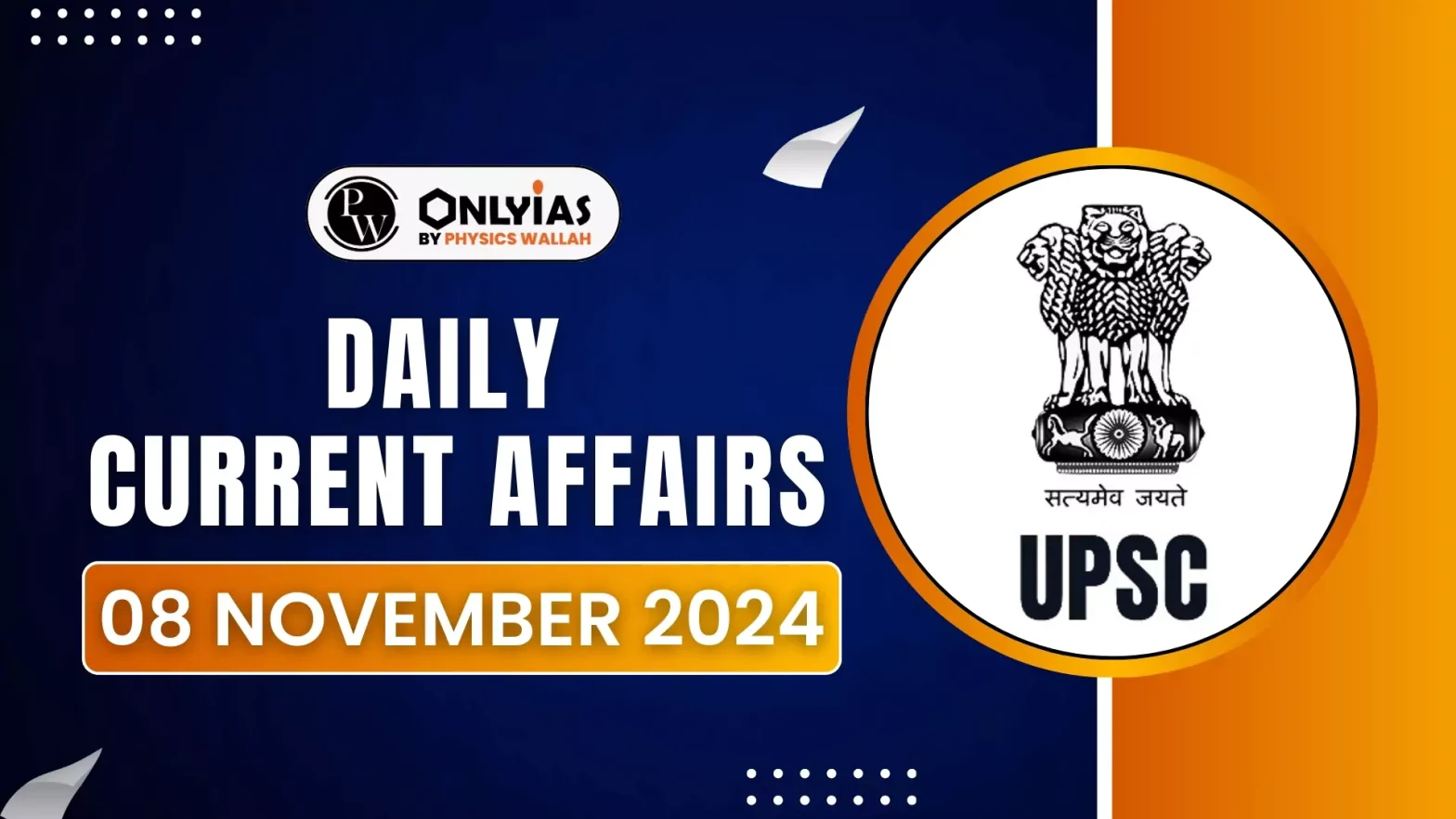Recently the Supreme Court ruled to end caste-based discrimination in prisons, including the removal of caste columns and any caste references from undertrial and convict registers.
Undertrial Prisoners
- An undertrial refers to a person who is either currently on trial, held in remand while awaiting trial, or in judicial custody during an investigation, as defined in the 78th Report of the Law Commission.
- The National Crime Records Bureau (NCRB) reports that, in 2022, India had 4,34,302 undertrials, representing 76% of the total jail population of 5,73,220.
|
Enroll now for UPSC Online Course
Key Highlights of the Court Directive: In Sukanya Shantha vs Union of India, SC Struck down provisions in State prison manuals that enabled caste-based discrimination.
- Colonial-Era Practices: The court highlighted the continuation of colonial practices like caste-based division of labor, barrack segregation, and biases, especially against denotified tribes and habitual offenders, which were upheld in prison manuals in at least 10 states.
- SC directed the removal of caste columns and references in prison registers addressing institutionalized caste discrimination and uphold prisoners’ dignity.
- Right to Dignity & Substantive Equality: The court emphasized that the right to dignity applies even to prisoners.
- SC directed states to amend prison manuals and laws to ensure that dignity is upheld for all incarcerated individuals.
- Individual Abilities Over Caste: Court stressed assigning roles based on abilities, not caste.
- Rehabilitation and Reform: Focus on creating equal opportunities for skill development and rehabilitation, counteracting caste prejudices.
- Three-Month Compliance Period: The judgment requires the Centre and states to make the necessary amendments to prison manuals and laws within three months, with compliance reports to be filed with the court.
- Clarification on Data Collection: Supreme Court clarified that NCRB data collection on crime statistics would not be impacted.
- NCRB needs to ensure that data on crime can still be collected without referencing caste in individual prison records.
About National Crime Records Bureau (NCRB)
- Establishment: Formed in 1986 as an information repository on crime and criminals, the NCRB operates under the Ministry of Home Affairs (MHA), Government of India.
- Genesis: NCRB was established based on recommendations from the Tandon Committee, the National Police Commission (1977-1981), and the Task Force of the Home Ministry.
- Role: It is responsible for collecting, analyzing, and maintaining crime data, providing valuable insights to help investigators trace crimes and criminals.
- Headquarters: New Delhi.
- Publications: Key reports include Crime in India, Accidental Deaths & Suicides, and Prison Statistics, detailing national crime trends and patterns.
Functions of NCRB
- Crime and Criminal Tracking Network and System (CCTNS): Since 2009, NCRB has been responsible for monitoring, coordinating, and implementing the CCTNS project, a network that links police stations across the country to create a centralized database of crime and criminal information.
- National Digital Police Portal: Launched in 2017, this portal provides police officers access to CCTNS data to help track criminals and suspects. It also allows citizens to access services like online complaint filing.
Mulla Committee
In 1980 the Government of India set-up a Committee on Jail Reforms under the Chairmanship of Justice A. N. Mulla.
Key recommendations of Mulla committee included:
- Human Dignity: Prisoners should be treated with respect, free from abuse, and protected from deprivation of fundamental rights.
- Basic Needs: Ensuring adequate food, water, sanitation, and healthcare.
- Legal Rights: Access to legal aid, speedy trials, and the right to challenge unlawful detention.
- Rehabilitation: Providing education, vocational training, and counseling to aid reintegration into society.
- Communication and Visitation: Allowing reasonable communication with family and friends.
- Grievance Redressal: Establishing mechanisms for prisoners to file complaints and seek justice.
- Prison Reforms: Improving infrastructure, reducing overcrowding, and promoting humane conditions.
|
- National Database of Sexual Offenders (NDSO): NCRB maintains this database, sharing it regularly with States and Union Territories to aid in monitoring offenders.
- Online Cyber-Crime Reporting Portal: NCRB serves as the Central Nodal Agency for this portal, enabling citizens to report cyber-crimes, particularly those related to child pornography and sexual offenses, and upload evidence.
- Central Finger Print Bureau: NCRB oversees this national fingerprint repository, storing and maintaining records that support crime investigation and verification processes across India.
Check Out UPSC CSE Books From PW Store
Rights of Prisoners in India
- Right Against Double Jeopardy (Article 20(2)): A person cannot be prosecuted and punished for the same offense more than once.
- Right to Free Legal Aid (Article 22(1)): Every person has the right to be defended by a lawyer, especially in serious criminal cases.
- Right to Speedy Trial (Article 22(1)): A person accused of an offense shall be produced before a magistrate within 24 hours of arrest.
- The trial should be completed within a reasonable time.
- Right to Humane Treatment (Article 21): Prisoners have the right to live with human dignity.
- They should not be subjected to torture or cruel, inhuman, or degrading treatment.
- Right to Medical Aid: Prisoners have the right to adequate medical facilities.
- Right to Education and Rehabilitation: Prisoners have the right to education and vocational training.
- They should be provided with opportunities for rehabilitation and reintegration into society.
![]() 8 Nov 2024
8 Nov 2024

